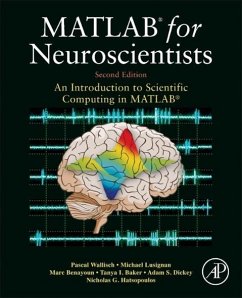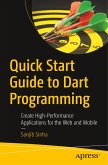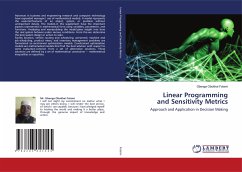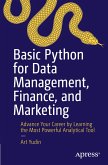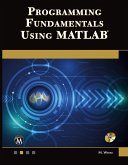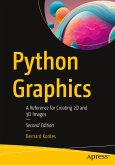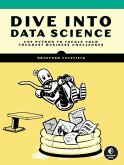MATLAB for Neuroscientists serves as the only complete study manual and teaching resource for MATLAB, the globally accepted standard for scientific computing, in the neurosciences and psychology. This unique introduction can be used to learn the entire empirical and experimental process (including stimulus generation, experimental control, data collection, data analysis, modeling, and more), and the 2nd Edition continues to ensure that a wide variety of computational problems can be addressed in a single programming environment.
This updated edition features additional material on the creation of visual stimuli, advanced psychophysics, analysis of LFP data, choice probabilities, synchrony, and advanced spectral analysis. Users at a variety of levels-advanced undergraduates, beginning graduate students, and researchers looking to modernize their skills-will learn to design and implement their own analytical tools, and gain the fluency required to meet the computational needs of neuroscience practitioners.
Hinweis: Dieser Artikel kann nur an eine deutsche Lieferadresse ausgeliefert werden.
This updated edition features additional material on the creation of visual stimuli, advanced psychophysics, analysis of LFP data, choice probabilities, synchrony, and advanced spectral analysis. Users at a variety of levels-advanced undergraduates, beginning graduate students, and researchers looking to modernize their skills-will learn to design and implement their own analytical tools, and gain the fluency required to meet the computational needs of neuroscience practitioners.
Hinweis: Dieser Artikel kann nur an eine deutsche Lieferadresse ausgeliefert werden.
"...a handy resource for instructors of neuroscience, particularly those interested in more intense data analysis and/or neural modeling. The book is clear, cogent, and systematic. It provides much more than the essential nuts-and-bolts-it also leads the reader to learn to think about the empirical enterprise writ large.This book should be given a privileged spot on the bookshelf of every teacher, student, and researcher in the behavioral and cognitive sciences." --Stephen M. Kosslyn, John Lindsley Professor of Psychology, Dean of Social Science, Harvard University, Cambridge, MA, USA
"This is an excellent book that should be on the desk of any neuroscientist or psychologist who wants to analyze and understand his or her own data by using MATLAB.Several books with MATLAB toolboxes exist; I find this one special both for its clarity and its focus on problems related to neuroscience and cognitive psychology." --Nikos Logothetis, Director, Max Planck Institute for Biological Cybernetics, Tübingen, Germany
"MATLAB for Neuroscientists provides a unique and relatively comprehensive introduction to the MATLAB programming language in the context of brain sciences.The book would work well as a supplementary source for an introductory course in computational analysis and modeling in visual neuroscience, for graduate students or advanced undergraduates." --Eero P. Simoncelli, Investigator, Howard Hughes Medical Institute; Professor, Neural Science, Mathematics, and Psychology, New York University, New York, USA
"This is an excellent book that should be on the desk of any neuroscientist or psychologist who wants to analyze and understand his or her own data by using MATLAB.Several books with MATLAB toolboxes exist; I find this one special both for its clarity and its focus on problems related to neuroscience and cognitive psychology." --Nikos Logothetis, Director, Max Planck Institute for Biological Cybernetics, Tübingen, Germany
"MATLAB for Neuroscientists provides a unique and relatively comprehensive introduction to the MATLAB programming language in the context of brain sciences.The book would work well as a supplementary source for an introductory course in computational analysis and modeling in visual neuroscience, for graduate students or advanced undergraduates." --Eero P. Simoncelli, Investigator, Howard Hughes Medical Institute; Professor, Neural Science, Mathematics, and Psychology, New York University, New York, USA

